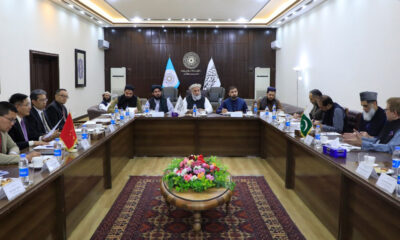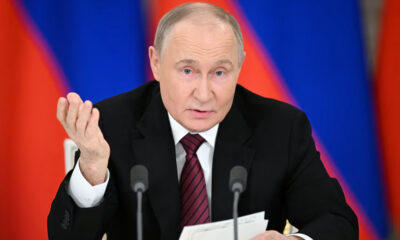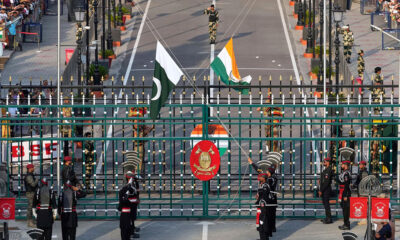Business
Iran’s non-oil exports to Afghanistan up 4%
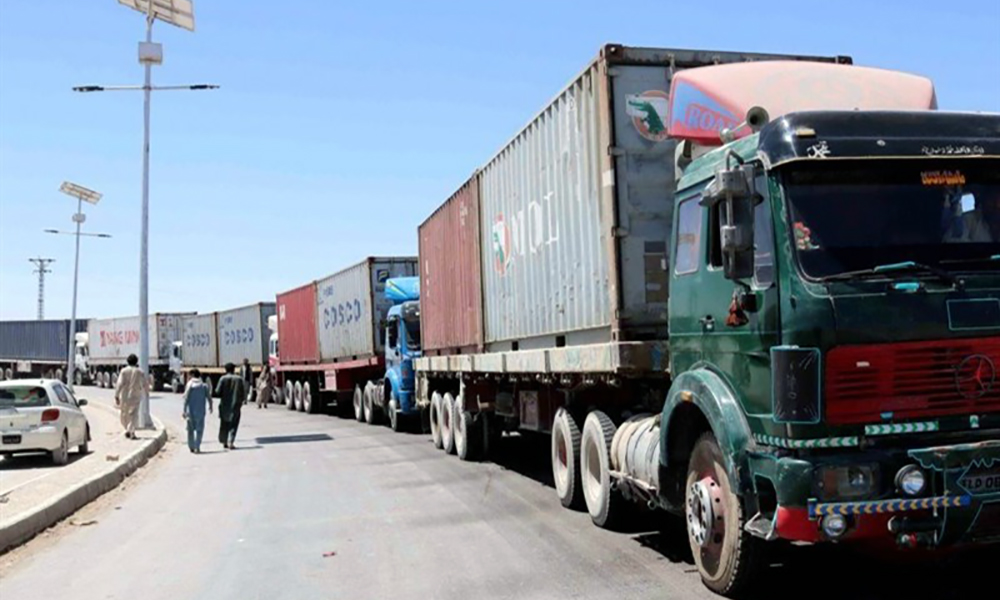
The value of Iran’s non-oil exports to Afghanistan increased by four percent during the first seven months of the current Solar year, as compared to the same period of time in the past year, the Tehran Times reported.
According to Ruhollah Latifi, the spokesman of the International Relations and Trade Development Committee of Iran’s House of Industry, Mining and Trade, Iran exported non-oil commodities worth $975 million to Afghanistan in the seven-month period of this year.
Latifi said Iran has a 35 percent share in Afghanistan’s import market, which is a considerable figure in bilateral trade ties.
Mohammad-Mehdi Javanmard-Ghassab, the economic adviser of the Iranian president’s special envoy on Afghanistan affairs, stated that the country is seeking to export technology, technical know-how as well as technical and engineering services to Afghanistan.
Increasing the production of Iranian products in Afghanistan is also on the agenda, he emphasized.
According to Mohammad Ghanadzadeh, the deputy head of Iran’s Trade Promotion Organization (TPO), the trade between Iran and Afghanistan has increased by 20 percent in the current Iranian calendar year (started on March 21).
Ghanadzadeh said Iran is ready to cooperate with Afghanistan in the country’s development and reconstruction projects, Tehran Times reported.
The Iranian and Afghan governments are taking some prominent measures to boost trade between the two countries.
In early March, Iran’s trade center and permanent exhibition of Iranian products was inaugurated in Kabul with the aim of developing trade relations between the two countries.
Then in late July, a joint exhibition of products made in Iran and Afghanistan was held in Herat.
More recently the two countries signed five memorandums of understanding (MOUs) on cooperation in different economic sectors.
The MOUs were signed in a ceremony on November 9 in the presence of Iranian Agriculture Minister Mohammad-Ali Nikbakht, President Raisi’s special envoy for Afghanistan Hassan Kazemi Qomi, and Deputy Prime Minister for Economic Affairs of the Islamic Emirate of Afghanistan Mullah Abdul Ghani Baradar.
The MOUs include the cooperation document of the Iran-Afghanistan Joint Economic Committee meeting, the document of the two sides’ Joint International Road Transport Cooperation Committee meeting, the MOU between Iran’s Civil Aviation Organization (CAO) and the Afghan side, the MOU between Iran’s Esfahan Steel Company and the Afghan side, and the MOU between Iran’s Secretariat of Free Trade and Special Economic Zones and the Afghan sides, Tehran Times reported.
Business
Chinese company keen to invest $50 million in automobile industry in Afghanistan

Chinese automobile company Dongfeng has expressed an interest to invest $50 million in Afghanistan.
A representative of the company said in a meeting with Ahmadullah Zahid, Deputy Minister of Industry and Commerce, that the company wants to invest $50 million in the automobile manufacturing sector in Afghanistan in four phases over a period of three and a half years.
He added that with this investment, 2,000 vehicles will be manufactured per year.
Welcoming the company’s interest in investing in the country Ahmadullah Zahid, the Deputy Minister of Industry and Commerce, described Afghanistan as one of the safe and secure places for investment with favorable profits.
He assured the Chinese that all domestic and foreign investors will be treated equally and will be fully supported.
In the meeting, the representative of Dongfeng also emphasized that the company’s investment in Afghanistan will create jobs for 500 to 700 people in the country.
He said that the company’s products will include cars, trucks, ambulances, and buses.
Business
Kyrgyzstan exports 25 million liters of petrol to Afghanistan in 2 months
The gasoline, worth $11.5 million, was exported to Afghanistan during January and February this year
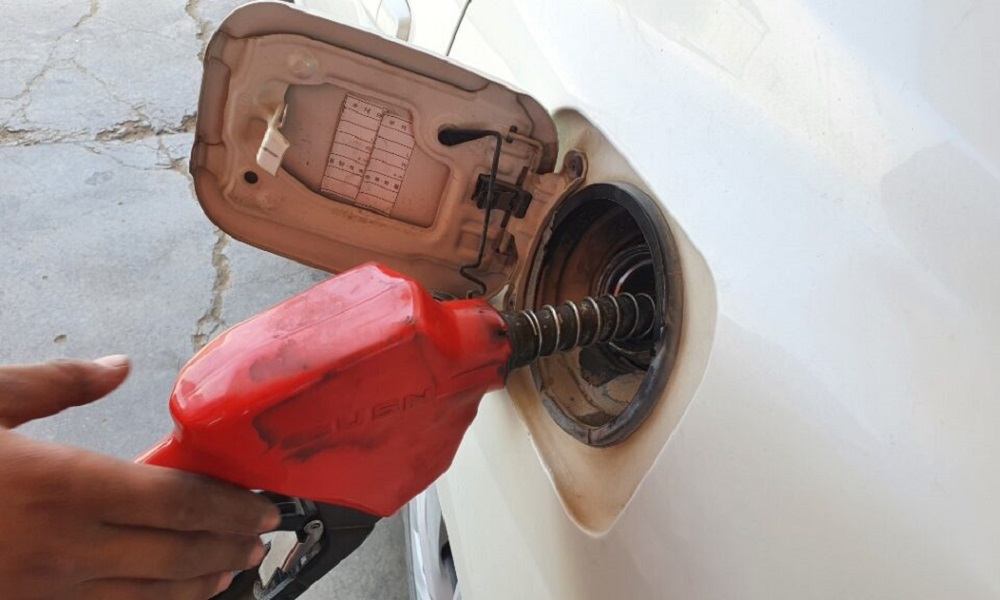
Kyrgyzstan has in two months exported 24.9 million liters of gasoline to Afghanistan, the Kyrgyz National Statistics Committee said Monday.
According to local media, the gasoline, worth $11.5 million, was exported during January and February this year.
Exports of gasoline to Afghanistan have been steadily rising over the past two years.
In the first six months of last year, 700 liters went to Afghanistan, against just 19 liters in the same period in 2023.
Overall trade between the two countries also saw a steady increase after the Kyrgyz government removed the Islamic Emirate of Afghanistan (IEA) from their list of banned organizations in September last year.
Afghanistan is now the main consumer of Kyrgyz motor gasoline, accounting for about 92 percent of all exports of this fuel.
While Afghanistan has its own oil and gas reserves, particularly in the Amu Darya basin, it relies heavily on imports, especially from Central Asian countries and Iran, to meet its energy needs.
Business
Trump says buying Iranian oil must stop, threatens secondary sanctions on purchasers

U.S. President Donald Trump said all purchases of Iranian oil or petrochemical products must stop and any country or person buying any from the country would be immediately subject to secondary sanctions.
“They will not be allowed to do business with the United States of America in any way, shape, or form,” he wrote on Truth Social on Thursday, Reuters reported.
Trump’s comments follow the postponement of the latest U.S. talks with Iran over its nuclear program, which had been due to take place in Rome on Saturday. A senior Iranian official told Reuters a new date will be set “depending on the U.S. approach.”
Trump’s administration has targeted Tehran with a series of sanctions on entities including a China-based crude oil storage terminal and an independent refiner it has accused of being involved in illicit trade in oil and petrochemicals.
In February Trump restored a “maximum pressure" campaign on Iran which includes efforts to drive its oil exports to zero and help prevent Tehran from developing a nuclear weapon.
Secondary sanctions are those where one country seeks to punish a second country for trading with a third by barring access to its own market, a particularly powerful tool for the United States because of the size of its economy.
Analysts have said that to really crack down on Iran’s oil exports the U.S. would have to impose secondary sanctions on entities such as Chinese banks that facilitate the purchases of Iranian oil. China is the largest buyer of Iranian crude.
-

 Latest News5 days ago
Latest News5 days agoCabinet Meeting convened to discuss Afghanistan’s population census plan
-

 International Sports5 days ago
International Sports5 days agoIPL 2025: Seven teams fighting for four spots
-

 Regional4 days ago
Regional4 days agoAt least 26 civilians killed in Indian strikes on Pakistan: Islamabad
-

 Regional4 days ago
Regional4 days agoIndia strikes Pakistan over Kashmir tourist killings
-

 Science & Technology4 days ago
Science & Technology4 days agoSkype ends operations after 22 years of service
-

 Latest News4 days ago
Latest News4 days agoIslamic Emirate of Afghanistan ‘concerned’ over rising tensions between Pakistan and India
-

 World4 days ago
World4 days agoMacron to meet Syrian president on Wednesday, expected to discuss security
-
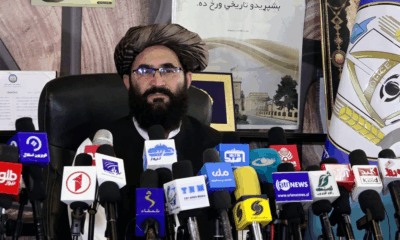
 Latest News4 days ago
Latest News4 days agoPassport Directorate earns nearly 13 billion AFN in one year


